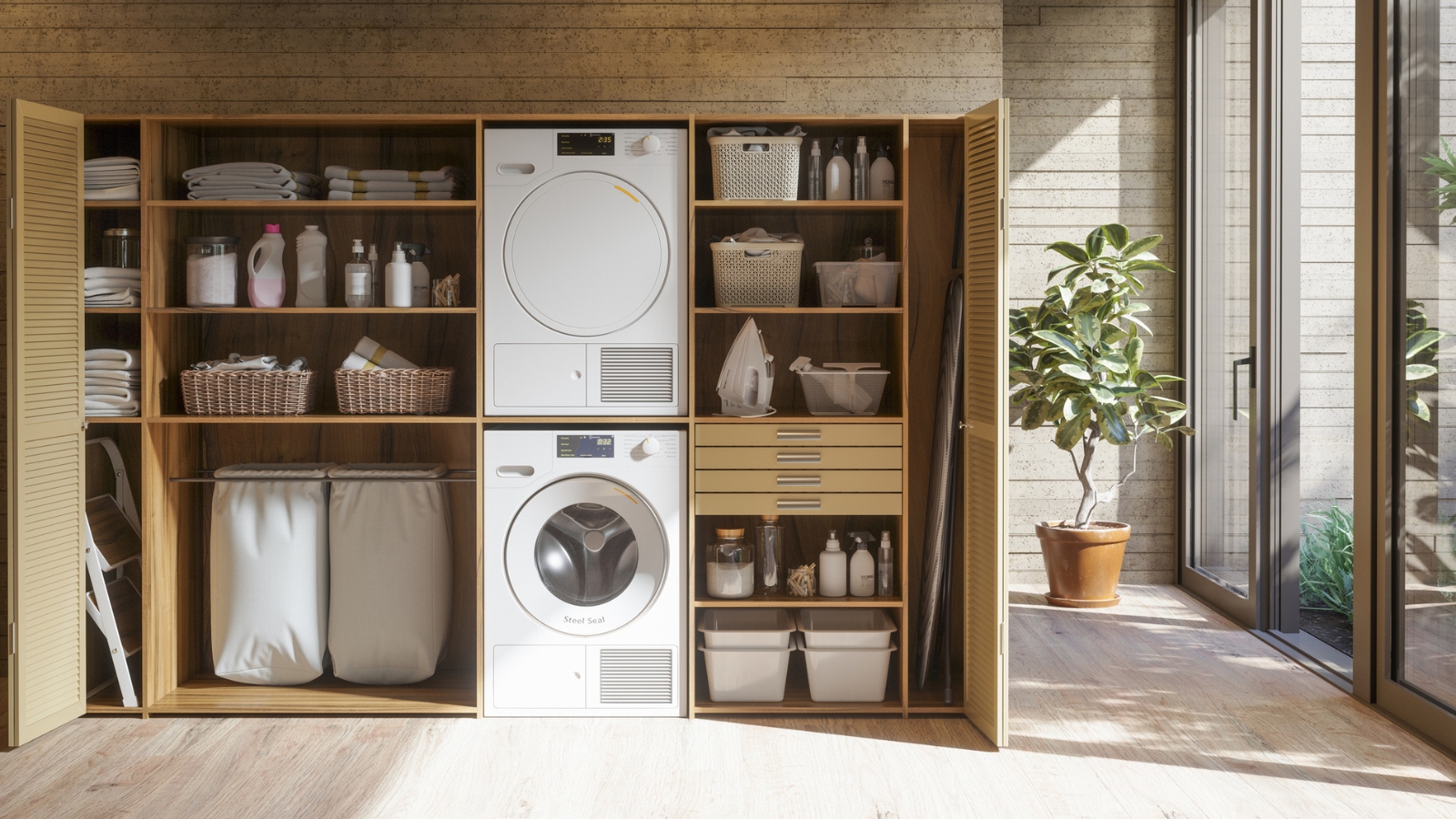
Our laundry rooms are the hub of household cleaning, tackling our dirty clothes and linens, and often a spot for storing cleaning supplies and gadgets.
While it's a highly functional space, laundry experts have warned us that it might be one of the most toxic rooms in our homes, with products and dirt buildup that could secretly be impacting your health.
Here, they reveal the secretly toxic things at home to get rid of from your laundry room and explained what to replace them with for a happier and healthier cleaning routine.
5 toxic laundry items to get rid of now
Switching over to some of these non-toxic home essentials will not only make your laundry routine healthier. It will also make your routine more sustainable for the planet while protecting your laundry and making clothes last longer. There are virtually no downsides!
Here’s what to swap out ASAP.
1. Laundry detergent
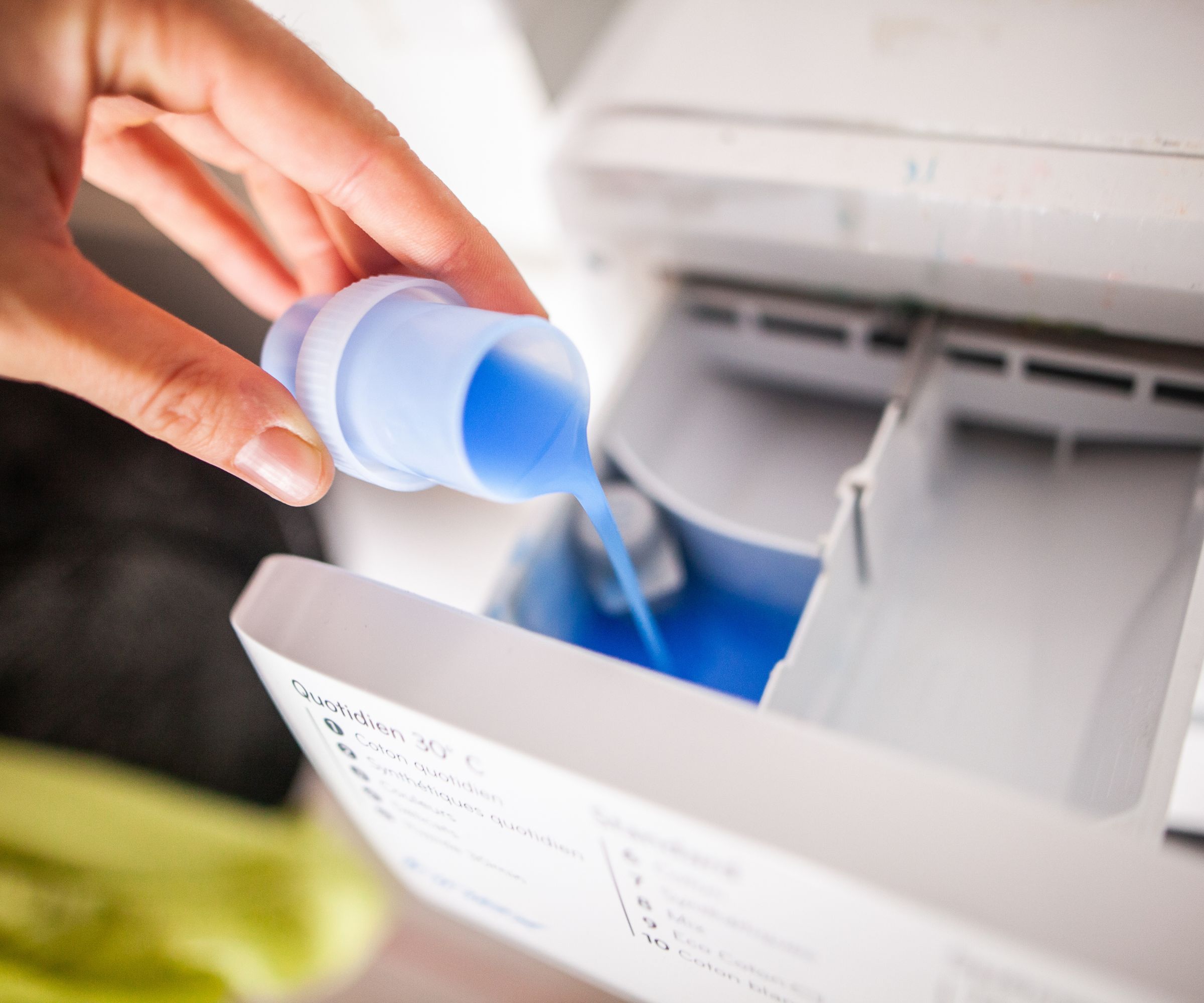
You shouldn’t wash clothes without detergent, but many popular mixes could effect your health.
Julie Moorhouse, non-toxic home and fashion blogger and owner of Good Maker Tales begins, ‘A 2008 University of Washington study found that laundry detergents emitted carcinogenic chemicals, including acetone, limonene, acetaldehyde, chloromethane, and 1,4-dioxane. Scented detergents contain phthalates which are known endocrine disruptors and fertility inhibitors.
‘Five of the six chemicals emitted air pollutants are recognized as having "no safe exposure level" by the Environmental Protection Agency. The worst thing about this study is that the chemicals were not listed on the ingredients list. In their place were listed "perfume oils". Companies are not legally required to disclose the name of the chemicals used in many parts of the world.’
While it is never a good day to find out that your number one most used laundry product could be making you sick, luckily, it is easy to make a switch. Elizabeth Shields, operations manager at Super Cleaning Service Louisville says, ‘Use gentler alternatives, such as Molly’s Suds Laundry Powder or a Seventh Generation Free & Clear Liquid Detergent [both available on Amazon]. They’re effective, environmentally friendly, and safe for sensitive skin.’
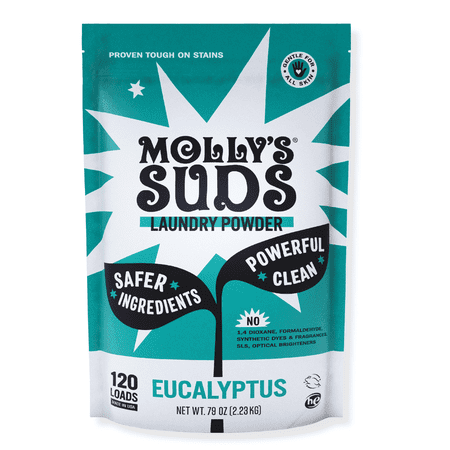
Made with pure plant-derived ingredients, Molly Suds detergent is better for the planet and safe for sensitive skin.

Free from fragrances and dyes, this laundry detergent is made with your health and the planet in mind.

This plant powered detergent still contains enzyme, helping you fight germs and stains with ease.
2. Dryer sheets
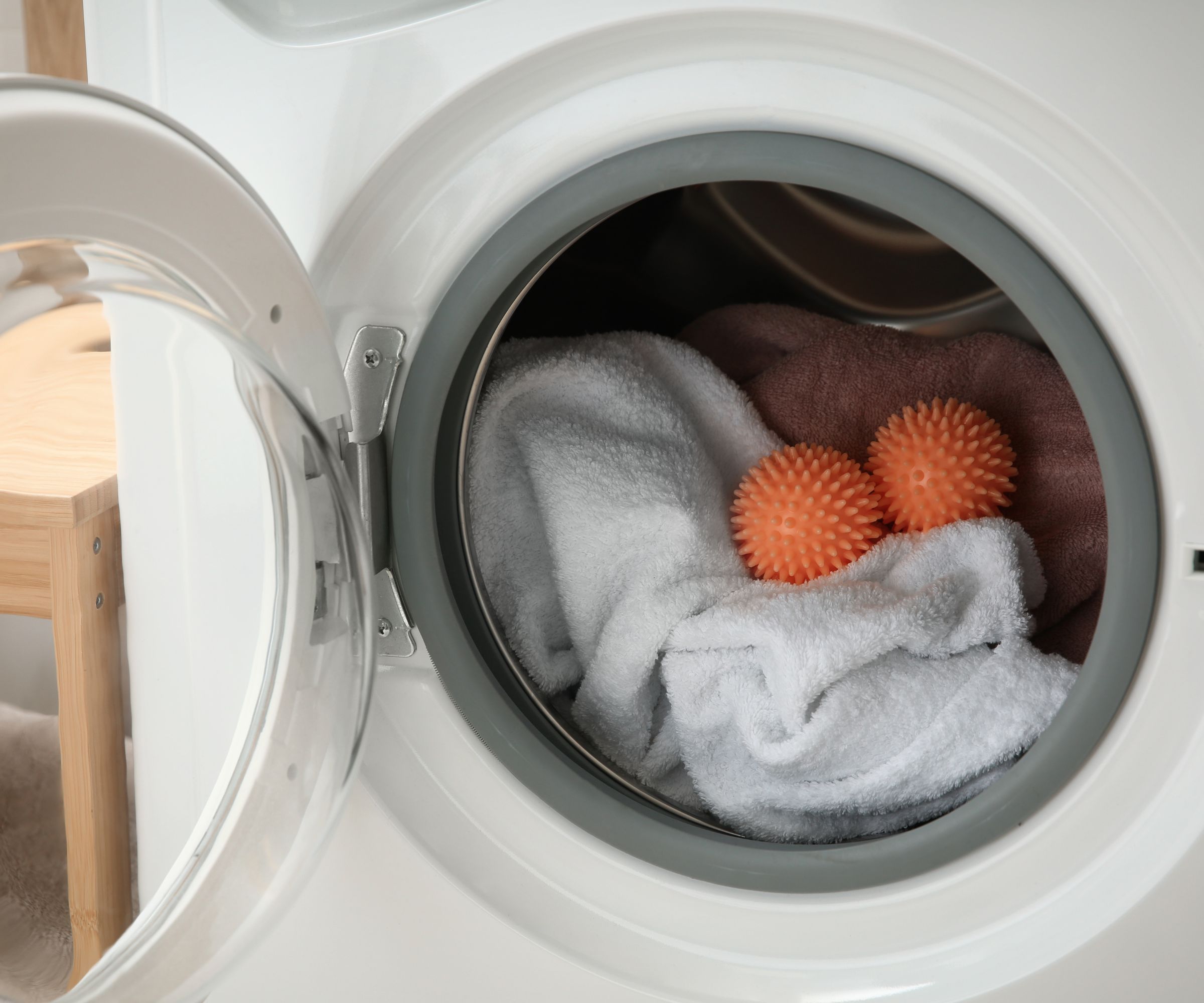
Dryer sheets are another popular laundry room essential that we throw into our machines without a second thought. Much like detergent, however, they are coated with toxic chemicals that are shortening the life of our clothes and appliances and possibly affecting our health – not to mention their impact on the planet. There are too many disadvantages of dryer sheets to count.
But what should you use instead of dryer sheets?
Elizabeth Shields says, ‘Instead, try wool dryer balls like Smart Sheep Wool Dryer Balls [from Walmart]. They also naturally soften fabrics, cut static, and decrease drying time without surface active agents and harsh chemicals.’
You can also ditch dryer sheets and instead pop a few drops of your favorite essential oil on a damp clean cloth.
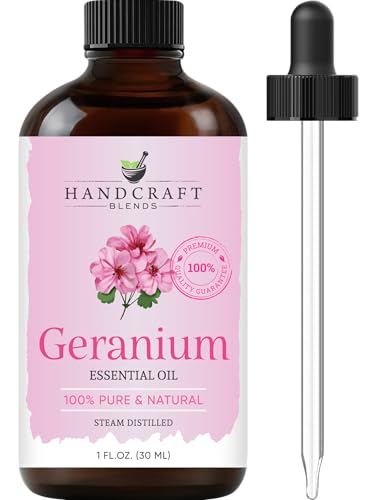
This premium grade pure essential oil is perfect for scenting laundry or making DIY cleaning sprays and delivers a luxurious and lasting aroma.
3. Bleach
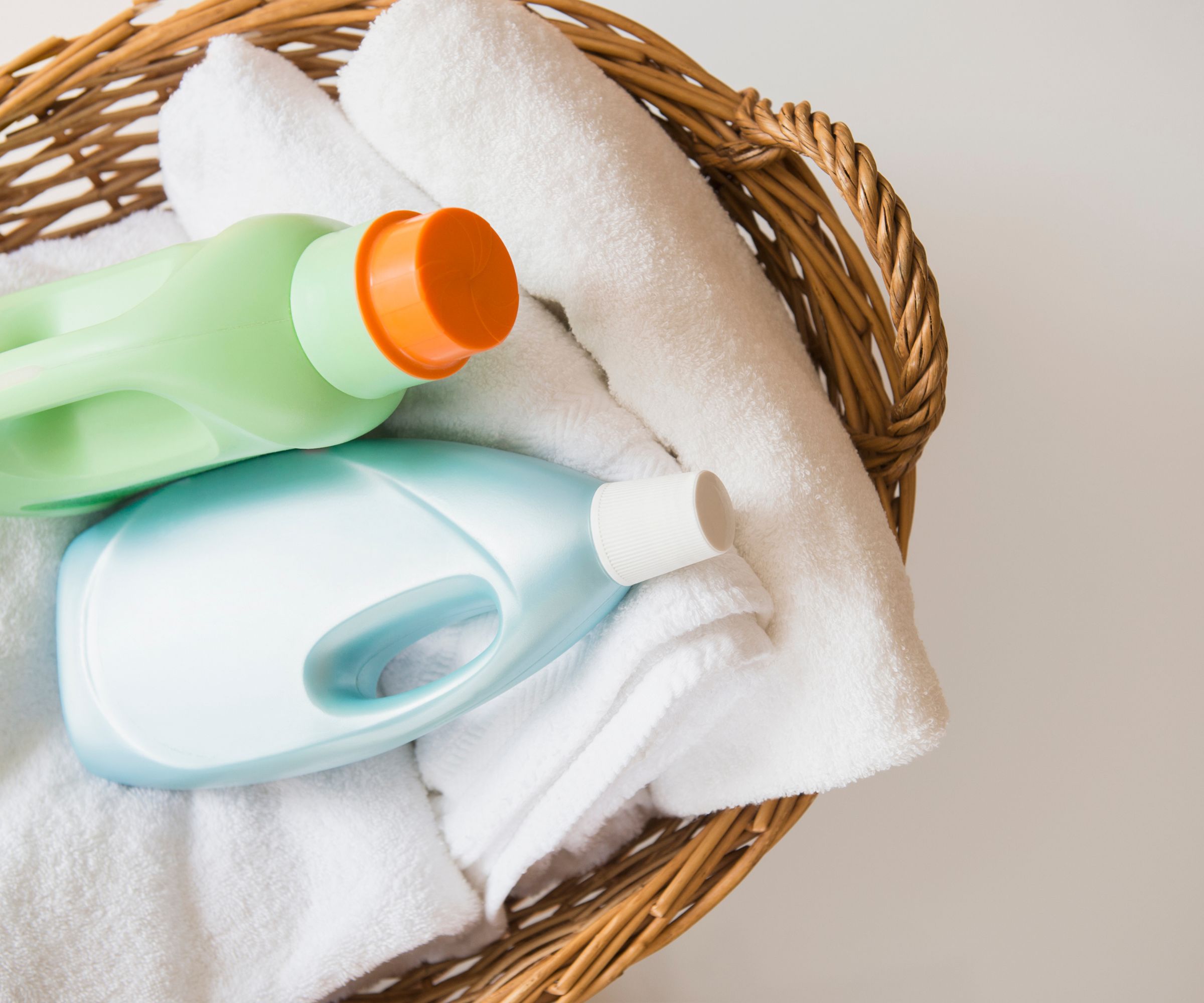
There are several items to never clean with bleach, and your laundry is one of them.
Elizabeth Shields explains, ‘Bleach can break down fabrics and wear out your clothes over time. Try alternatives suchas OxiClean White Revive [from Walmart] or Nellie’s Oxygen Brightener [at Amazon]. These whites do not damage the fabric of the clothes or the environment.’
Similarly, you should be on the lookout for non-toxic alternatives to Borax, as this common laundry alternative can damage cells, irritate skin and eyes, and be deadly if accidentally ingested. It is banned in the EU for these reasons.
4. Stain removers
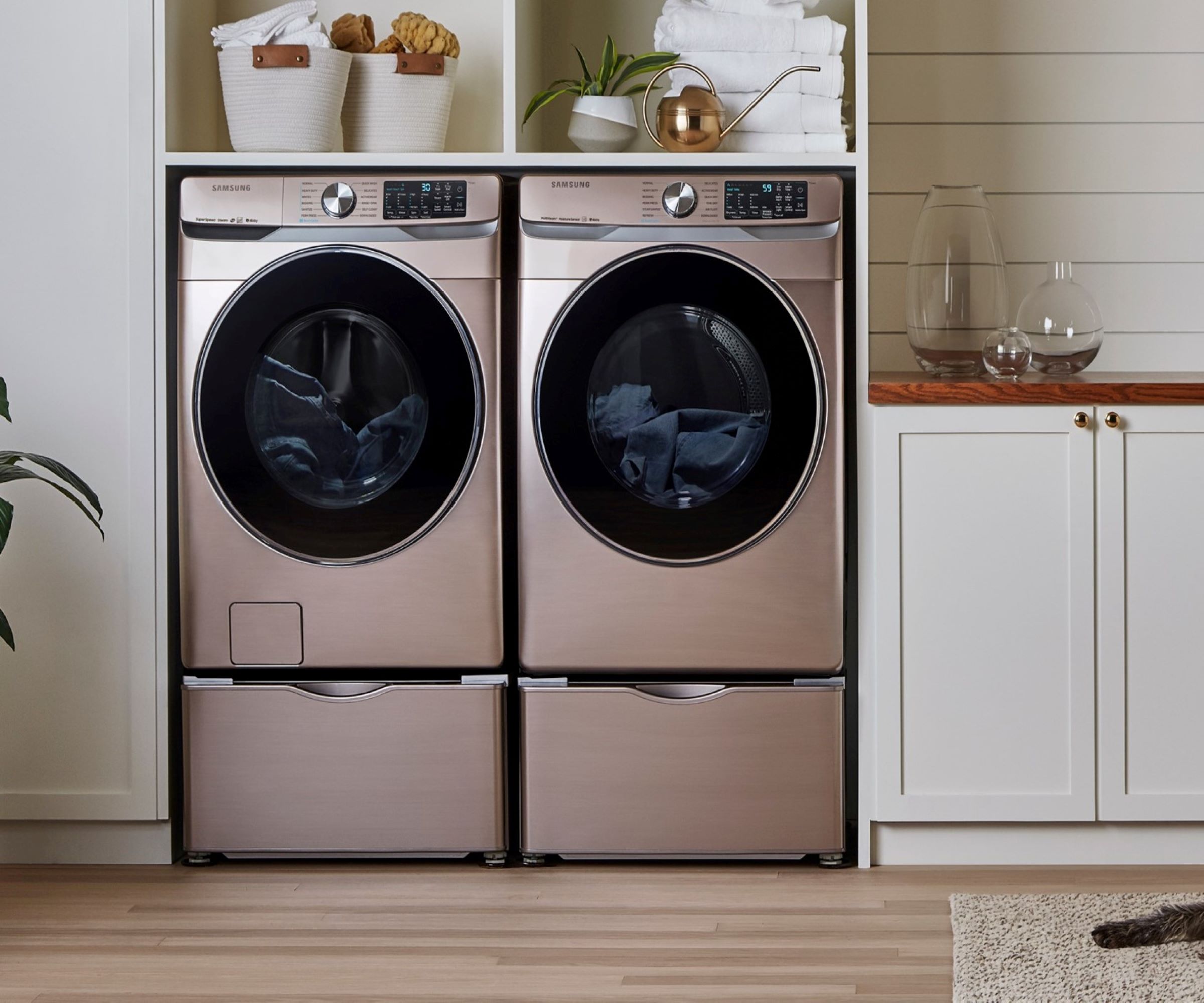
Setting up a stain station is a great way of protecting all sorts of fabrics around your home from permanent damage, but you may want to reassess some commercial stain removal products.
Elizabeth Sheilds says, ‘Toss the spray of toxins out of the window and upgrade to Puracy Natural Stain Remover [from Amazon]. It is plant-based, biodegradable, and tough on stains yet still gentle on fabrics, suitable for families and anyone with sensitive skin.’
You can even get a long way with stain removal by cleaning with vinegar and cleaning with baking soda, making DIY cleaning solutions free from chemicals altogether.
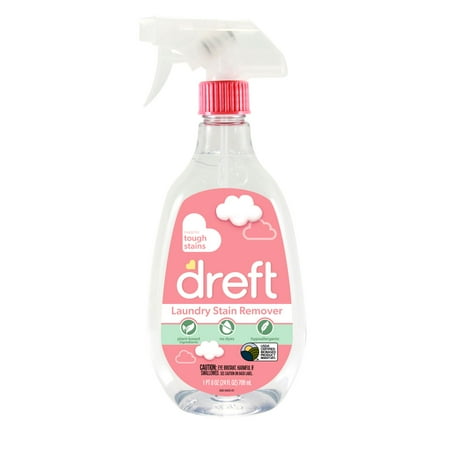
Designed to remove stains from baby clothing, this handy stain fighting spray breaks down organic stains with ease, and is perfect for sensitive skin.
5. Fabric softeners
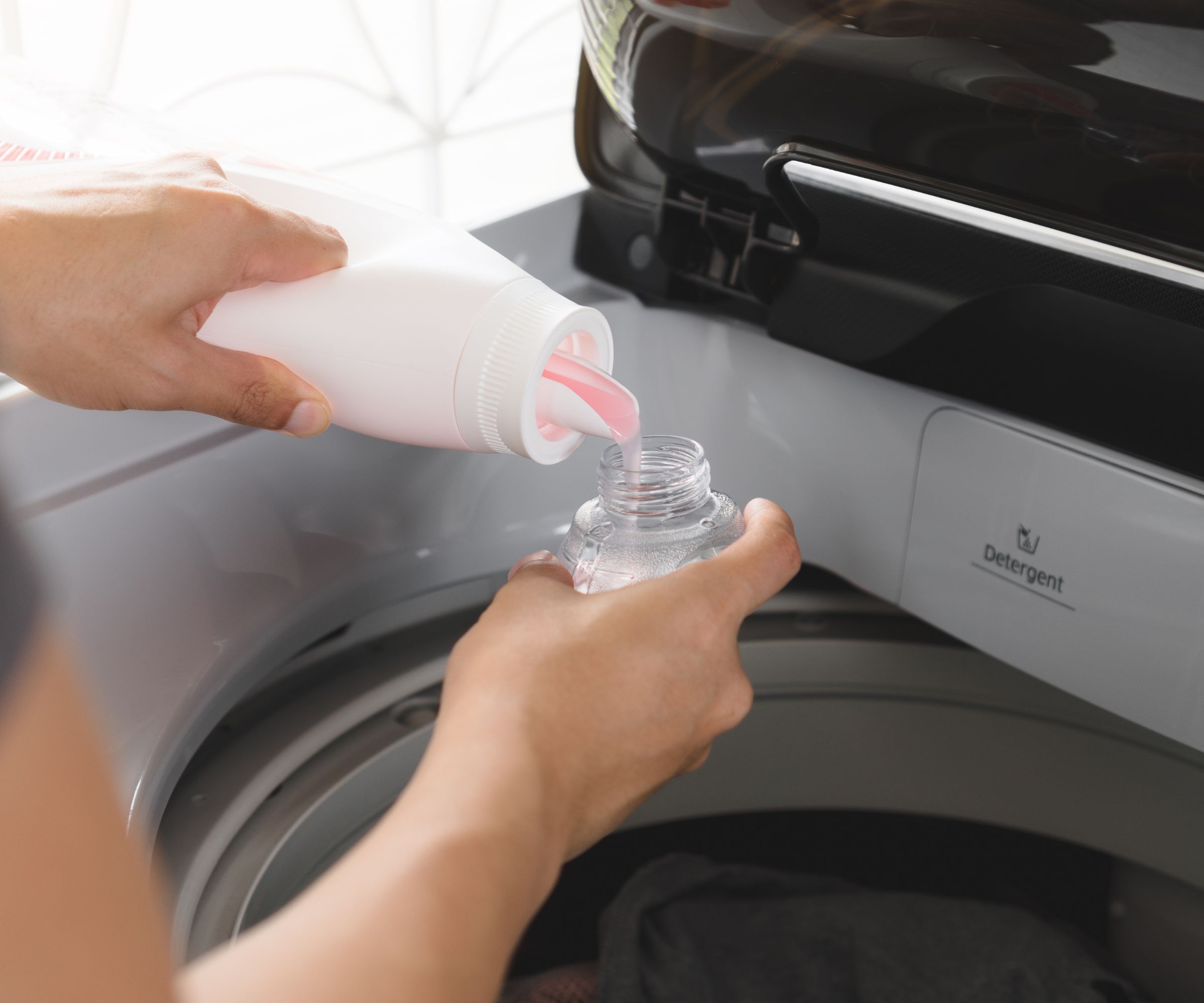
Fabric softeners are one of those products many laundry experts warn against using altogether.
Yes, they help to keep laundry smelling fresh beyond laundry day, but they also coat clothing in a thick layer of chemicals that not only damage the fibers but make them highly flammable and less absorbent and breathable at the same time. There are so many instances you should never use fabric softener, including on towels and microfiber cloths, that it’s often best left on the store shelf.
That being said, if you are worried about making laundry smell better, Elizabeth Shields says, ‘For a fresh, clean scent, add a few drops of essential oils to damp wool dryer balls. If you like dryer sheets, use naturally scented ones like Mrs. Meyer's Clean Day Dryer Sheets [available at Walmart].’
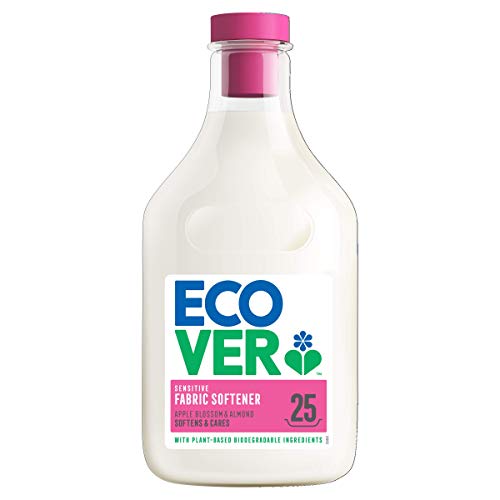
If you do still want to use fabric softener for the occasional scratchy garment, Ecover is a good bet. It is made with plant-based ingredients and is dermatologically tested for use against sensitive skin.
It is not just your products that need reassessing – your laundry room might be harboring secret mold.
Elizabeth Shields, cleaning expert, reveals, ‘Laundry rooms are also subject to moisture. Wet clothing, steaming washers, and leaks put humidity in the air,which does a great job of growing mold and mildew that stink, cause allergies, and degrade air quality.’
Deep cleaning a laundry room (including cleaning your washing machine and cleaning your tumble dryer) every month is a must to keep your home healthy.







